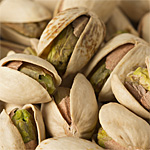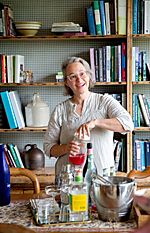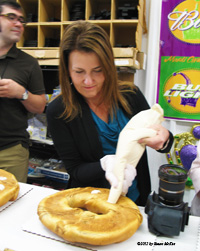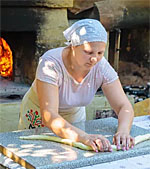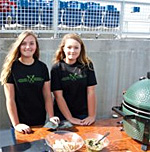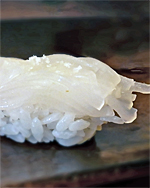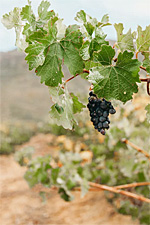Experience Polish Cuisine . . . in Poland
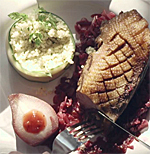 Special to Road Trips for Foodies
Special to Road Trips for Foodies
From Polish National Tourism Office
A journey to explore the tastes of Poland will lead you to rediscover the times when the same lands were occupied by people of different nations: Jews, Lithuanians, Ukrainians, Tatars. The cultural contributions made by these peoples included their special culinary traditions. This variety is noticeable on Polish tables even today.
Ancient recipes are still kept alive in Poland. Just go to Podlasie, where you can try the typical Lithuanian kibiny, potato kartacze stuffed with minced lamb and kindziuk, an original dried sausage.
In the vicinity of Sejny, you will find traditional Prussian sekacz, a delicate-tasting and unusually-shaped cake fire-roasted on a spit. In the Lublin area you can sample the old Polish pierog bilgorajski, a potato pancake baked with cottage cheese and buckwheat groats.Never leave Podhale without taking with you some of Poland’s most famous cheese, the smoked oscypek made from ewe’s milk to a recipe borrowed centuries ago from wandering Romanian shepherds. It is also worth being tempted by other delicacies from the Podhale family of dairy produce: the mild bundz, the spicy bryndza or the very healthy zetyca, whey made from ewe’s milk.
Malopolska is also famous for the smoked sausage called kielbasa lisiecka, produced since the 1930s in Liszki near Krakow. It is hard to imagine Polish cooking without soups, such as borsch, consommé and mushroom soup. Among the best known is zur na zakwasie, made of fermented rye flour and particularly popular in Silesia, and the highlanders’ kwasnica, a goose consommé with threads of sauerkraut.
For dessert we recommend pierniki (gingerbread cakes) from Torun. These are perhaps Poland’s most representative confectionery product, with a tradition going back to the Middle Ages. The cakes, smelling of honey and spices and baked in many different shapes, have been presented on special occasions to important personages, including emperors, Nobel prize winners and presidents.
Other towns have also developed their own distinctive bakery produce. Krakow has its pretzels covered with sesame and poppy seeds, also called by their Jewish name of bajgiel. Kazimierz Dolny is known for its onion rolls and yeasty cockerels, while Poznan has its rogale marcinskie, crescent-shaped cakes baked on November 11 for the day of St. Martin, the city’s patron saint.
(Photo courtesy of Polish National Tourism Office in USA)


